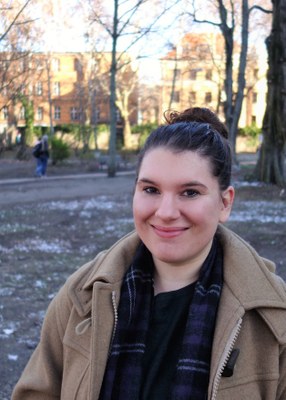Brain cell proliferation in hypoxic waters
Comparison of brain cell proliferation and its consequences for sensory processing and behaviour in weakly electric fish as a function of the level of dissolved oxygen
 Marie-Luise Vollbrecht, M. Sc.
Marie-Luise Vollbrecht, M. Sc.
My main research interest is exploring the effects of environmental stressors on the physiology of organisms. My previous qualifications include a B. Sc. in Biology and a M. Sc. in Biodiversity and Conservation, both from the Philipps-University in Marburg. Prior to starting my work in the Krahe Lab, I participated in an international training and research project at the GEOMAR Helmholtz Centre for Ocean Research in Kiel.
In my doctoral thesis, I will study the consequences of oxygen deprivation for brain cell proliferation, neurogenesis, and cognitive performance in weakly electric fish. I intend to answer broad questions surrounding the impact of hypoxia as an acute and chronic natural stressor on brain plasticity and behaviour of African mormyrid weakly electric fish. How does the level of dissolved oxygen in the water affect brain plasticity and electrosensory performance of these weakly electric fish. I use a combination of field experiments in their natural habitat in Uganda with laboratory experiments involving immunohistochemical methods and behavioural tests.
Hypoxia occurs naturally, e. g., in stagnant water bodies and swamps, but due to global warming, is posing an increasing threat to aquatic ecosystems worldwide. The approach of comparing organisms from low- and high-oxygen habitats and taking recent anthropogenic changes to their habitats into account is a useful tool for understanding, and eventually managing, the threats of hypoxia in the future.
